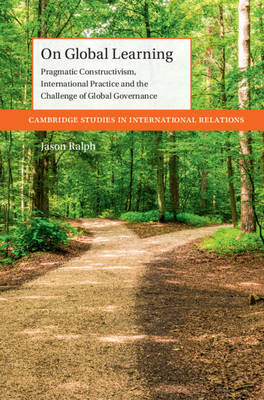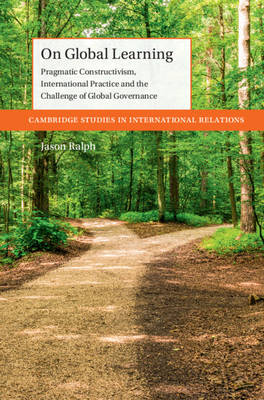
- Afhalen na 1 uur in een winkel met voorraad
- Gratis thuislevering in België vanaf € 30
- Ruim aanbod met 7 miljoen producten
- Afhalen na 1 uur in een winkel met voorraad
- Gratis thuislevering in België vanaf € 30
- Ruim aanbod met 7 miljoen producten
Zoeken
On Global Learning
Pragmatic Constructivism, International Practice and the Challenge of Global Governance
Jason Ralph
€ 158,95
+ 317 punten
Omschrijving
Global security, climate and health challenges have all created a deep-seated unease about international society's capacity to cope with change. International Relations should help practitioners develop appropriate responses, but Jason Ralph argues that IR would be better positioned to do so if it drew more explicitly on the insights of classical Pragmatism. By bringing this tradition in from the margins, Ralph comprehensively engages norm, practice, realist and global IR theory to extend the 'new constructivist' research agenda in a normative direction. He develops a 'Pragmatic Constructivist' approach to assess how well communities of practice facilitate the learning that mitigates emergent social problems and improves lived experiences. This normative assessment focuses on the extent to which communities of practice are characterized by inclusive reflexivity and deliberative practical judgment. These two tests are then applied to critique existing communities of practice, including the UN Security Council, the UNFCCC and the WHO.
Specificaties
Betrokkenen
- Auteur(s):
- Uitgeverij:
Inhoud
- Aantal bladzijden:
- 300
- Taal:
- Engels
- Reeks:
Eigenschappen
- Productcode (EAN):
- 9781009385787
- Verschijningsdatum:
- 21/09/2023
- Uitvoering:
- Hardcover
- Formaat:
- Genaaid
- Afmetingen:
- 152 mm x 229 mm
- Gewicht:
- 607 g

Alleen bij Standaard Boekhandel
+ 317 punten op je klantenkaart van Standaard Boekhandel
Beoordelingen
We publiceren alleen reviews die voldoen aan de voorwaarden voor reviews. Bekijk onze voorwaarden voor reviews.











